Below are student testimonies from Thomas’ two-day seminar, Re-Imagining the Family Album , at Hunter College’s Integrated Media Arts Program for the Masters in Fine Arts students.
As I looked at the photos and interviewed my parents over my computer, I found myself trying to connect our experiences of this time of life, our midtwenties, and also connect to them across the physical distance between us. It became a project about warping time and place. After reflecting on this project, I think the value is mostly in the process of making it and sharing it with my family. While I think it might be interesting to make something that was thematically relatable to a wider audience, my primary goal is to make something that my parents enjoy watching and feels positively representative of this story of theirs combined with my own creative interpretation of it. My parents are scientists, not artists, and so creating this feels like reaching for a connection across distance and time but also individuality.
P Amanda Madden
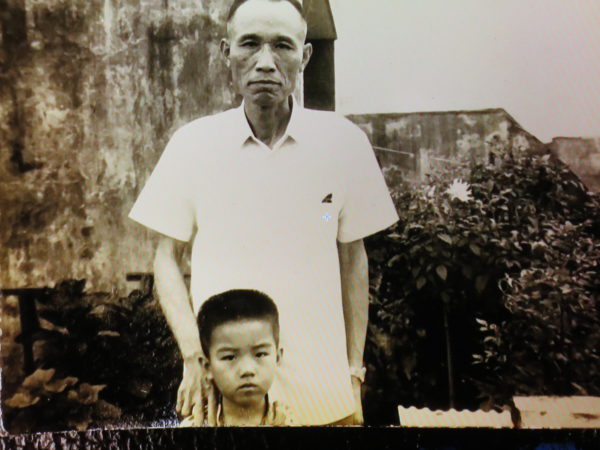
The story originates from my own desire to search and to understand my Grandfather who I’ve never met before. After interviewing some of my family members about Grandfather/family history, I now try to expand the story that would connect to the relationship with my father. Because I gradually understand that some spirits and value being possessed by my Grandfather had influenced my father and me. I would like to put them together to tell a more contextual story of my family and me. However, it is also a challenge to me to put myself into the story, not only about the story structure- how to construct the storyline, but also about my role in this story. This project would be a feature documentary film.
Chieh Chun Lee
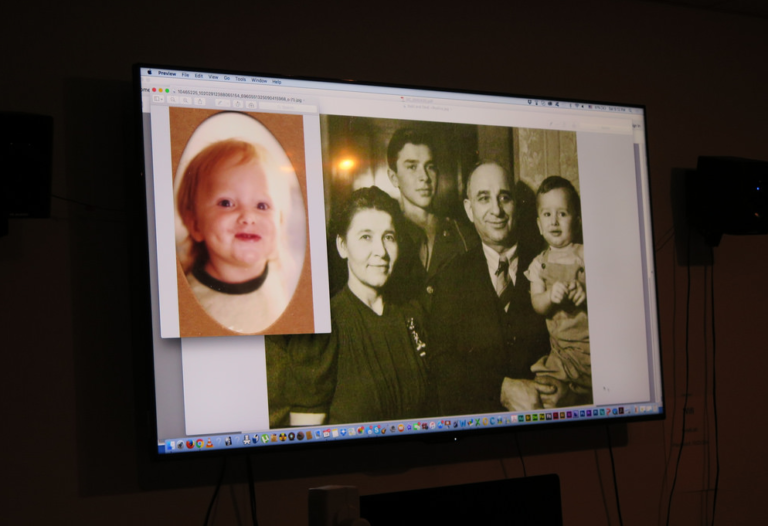
“Initially in the first class I thought about exploring the idea of memory as fiction in my project. As I started research, looking for family photos to include in the project, I had a very interesting conversation with my cousin who shared some of her mother’s family story, the part of the family that is not related to me. As she described her great-grandparents story, and her grandmother’s life an interesting theme emerged from her narrative and I switched directions with my project. I tried to tell a story that would reveal the nuanced trajectory of a family of refugees that had to flee from Nazi Germany to Brazil. I wanted to explore a narrative that exposed the contradictions and change in the social dynamics of a wealthy, privileged family who are also victims of persecution. I wanted to explore how immigration, war, and displacement challenge the concept of privilege, and victim.
While we look at family photos and personal photos that belonged to this family, we hear a narrative that many times contrasts with the images, and vice-versa. The photos are shown one at a time but they stack up in a way that there’s always a visual residue from the previous one. This format seemed appropriate to me because it is not linear. It is somehow similar to memory: fragmented, cumulative, and sometimes repetitive. It is also a visual representation of time and it’s multilayered durations, as the stories in this project progress in time, specifically.”
Fernanda Faya
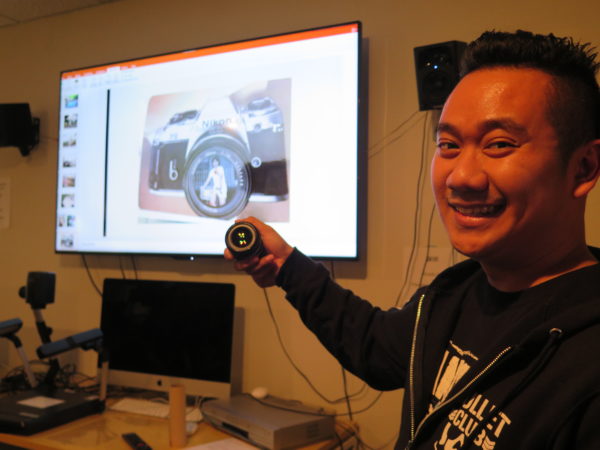
“The project evolved from the original idea I presented the first of the workshop back in October. The original idea was to try to put together the story of my father’s side of the family living in Chicago during the 50’s and the 60’s in the midst of operation bootstrap and the civil rights movement. I realized that was too big and overwhelming endeavor for just one month so I decided to scale it down and push myself to work with new formats and concepts that challenged me and the engaged the audience more actively. I look forward to continue developing the project with other segments that push reconcile and open spaces of dialogue around gender and queerness. The idea is to bridge missing pieces of the family history with multiples truths and figure out a way to hold the lived experiences of my ancestors with my own voice and experience which often feels far removed yet directly descendant of theirs.”
Patri Gonzalez Ramirez
Check out our Flickr album to see more of the students sharing in class.

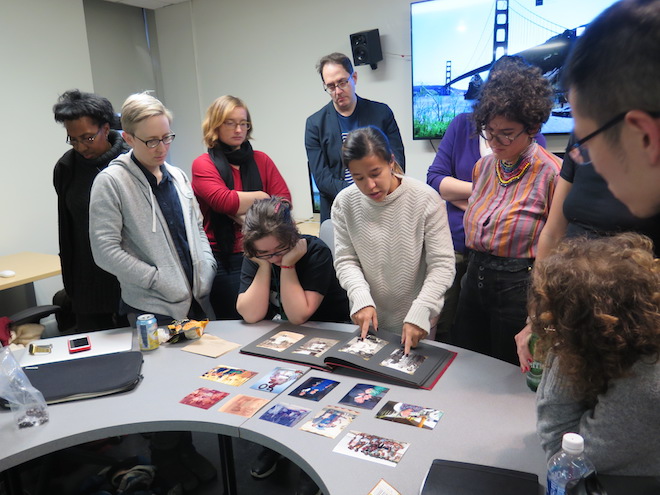
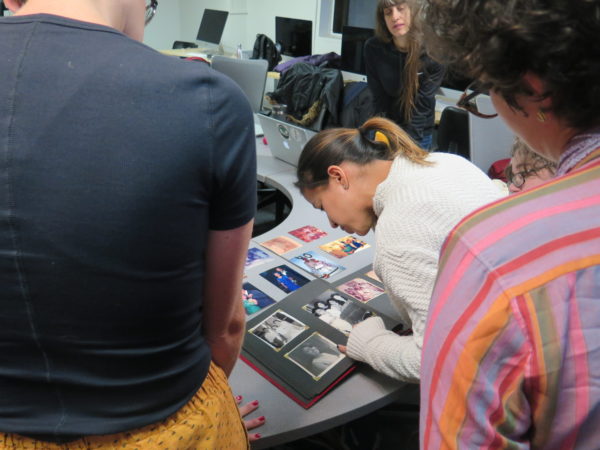
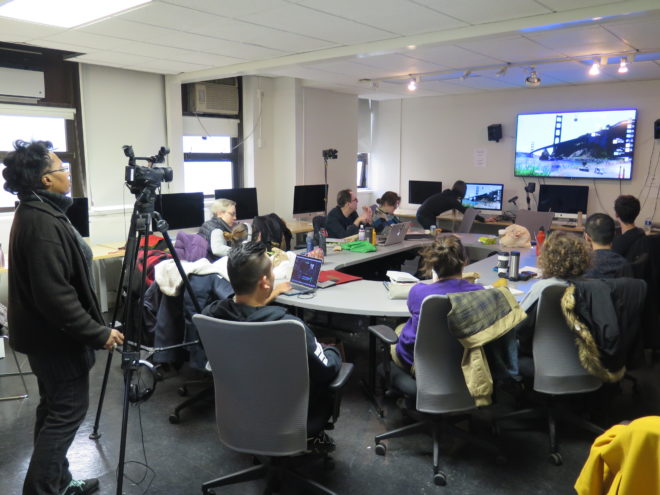
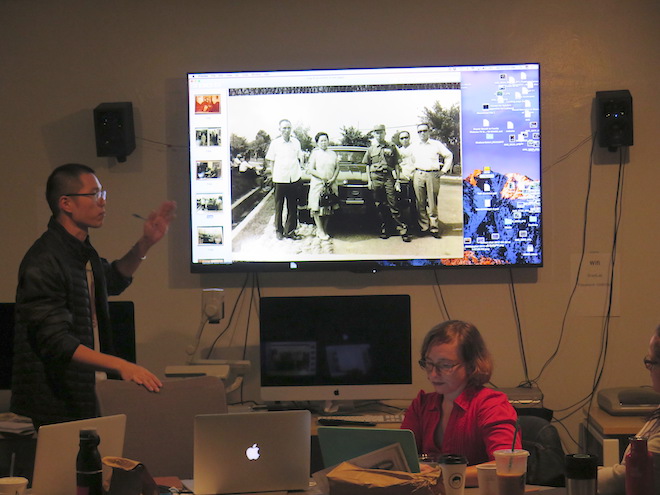

No comments yet.